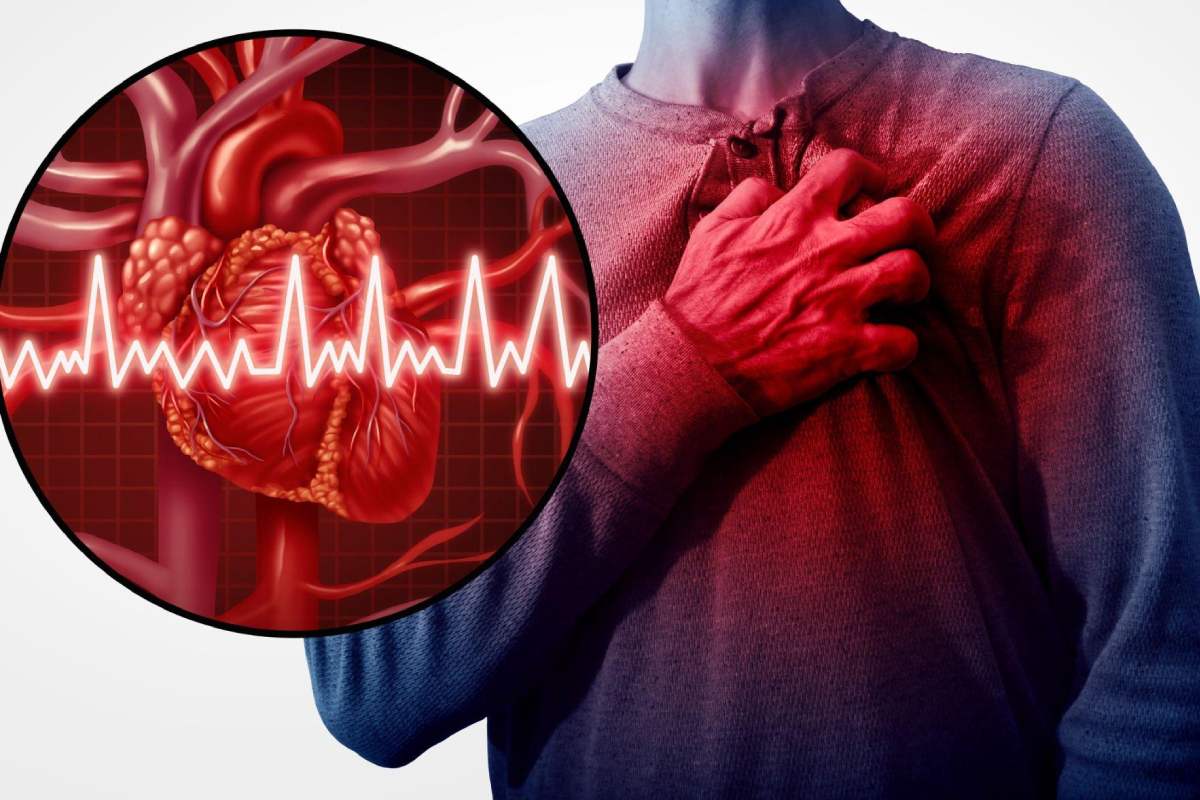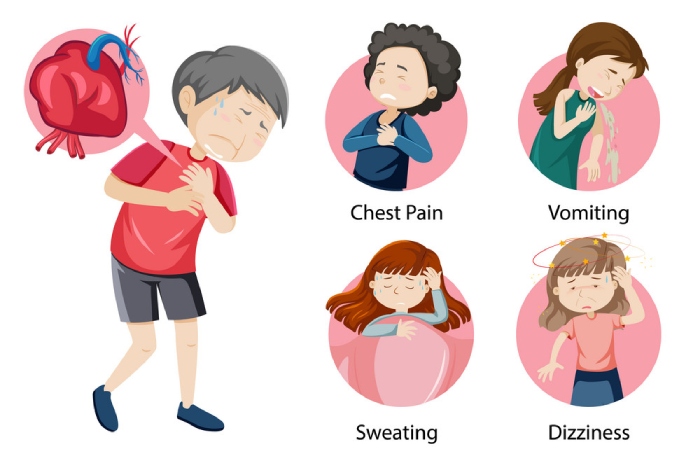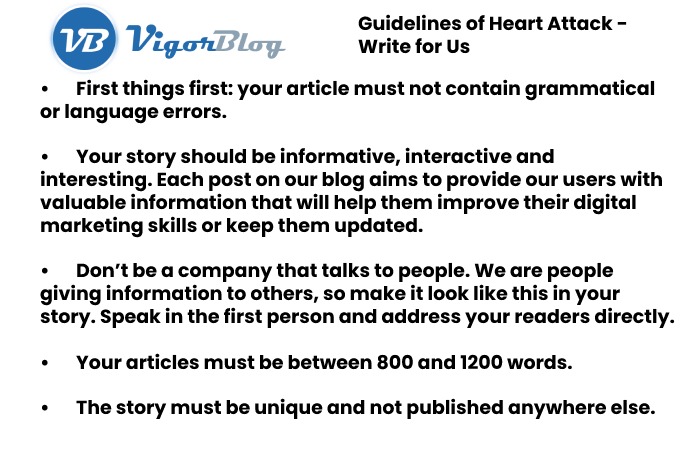Heart Attack Write for Us
 Heart Attack Write for Us – Want to write to us? We seek guest post contributors with knowledge of disease heart attacks. We welcome you to join us if you can create attractive blogs and articles about heart attacks.
Heart Attack Write for Us – Want to write to us? We seek guest post contributors with knowledge of disease heart attacks. We welcome you to join us if you can create attractive blogs and articles about heart attacks.
Vigorblog is the most trusted resource for everything related to the disease. Our purpose is to educate, inform, and provide them with the most updated information through information recommendations—our recommendations are based on comprehensive research.
We appreciate the value bloggers, content writers, and digital marketers bring to our website with their well-researched and quality content. If you are searching for a heart attack resource to share your opinion and expertise, there is none better than Vigorblog.
We will consider guest post offers related to Health, Diet, Skin, Products, Beauty, and Technology. If you’d like to submit an article, please email contact@vigorblog.com
How to Update Your Articles?
To Write for Us, you can email us at contact@vigorblog.com
What is a Heart Attack?
A heart attack occurs when blood flow to the heart is severely reduced or blocked. The blockage is usually due to an accumulation of fat, cholesterol, and other substances in the heart (coronary) arteries. The fatty, cholesterol-containing deposits are called plaques. The process of plaque accumulation is called atherosclerosis. Sometimes, a plaque can rupture, blocking blood flow by forming a clot. A part of the heart muscle may become damaged or even die from a lack of blood supply. A heart attack is a condition also known as myocardial infarction.
Symptoms Of Heart Attack
 Heart attack symptoms include:
Heart attack symptoms include:
- Pain, discomfort, weight, tightness, squeezing, or discomfort in your chest, arm, or behind your breastbone
- Back pain, jaw pain, throat pain, or arm pain
- Fullness, indigestion, or choking sensation (it may feel like heartburn)
- Sweating, nausea, vomiting, or dizziness
- Severe weariness, anxiety, or shortness of breath
- Fast or irregular pulse
Symptoms can vary from person to person or from one heart attack to the next. Women are more prone to experience the following heart attack symptoms:
- Unusual exhaustion
- Breathing difficulty
- Nauseousness or vomiting
- Feeling dizzy or lightheaded
- Discomfort in your stomach. It might be indigestion.
- Neck, shoulder, or upper back discomfort
Some heart attacks do not cause symptoms (a “silent” myocardial infarction). Diabetes patients are more likely to experience this.
Risk Elements
Age
Men over 45 and ladies over 55 are more prone than younger men and women to have a heart attack.
Blood Pressure That Is Too High
High blood pressure can injure the arteries that lead to the heart over time. In addition, high blood pressure combined with other illnesses, such as obesity, high cholesterol, or diabetes, raises the risk even further.
Obesity
Obesity is associated with high blood pressure, diabetes, high triglyceride, harmful cholesterol levels, and low good cholesterol levels.
Diabetes
Blood sugar levels rise when the body does not produce or use the hormone insulin properly. High blood sugar levels raise the chance of having a heart attack.
Family History Of Heart Attacks
If your brother, sister, father, or grandparent had a heart attack while they were young (by the stage of 55 for men and 65 for ladies), you might be at a higher risk.
Guidelines of the Article – Heart Attack Write for Us
 You can send your article to contact@vigorblog.com
You can send your article to contact@vigorblog.com
